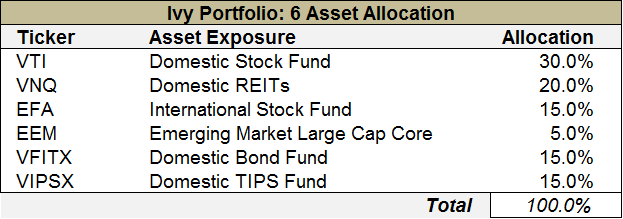8 Reasons to Trade ETFs and Not Mutual Funds
Post on: 5 Апрель, 2015 No Comment

September 11, 2008 By John Nyaradi
As the markets continue to swoon and non-stop historic volatility wears on, investors patience and pocket books net outflows from mutual funds have accelerated over the course of the last few months. And the damage has been compounded by the growth of Exchange Traded Funds and their inherent advantages over mutual funds.
In this article, well discuss the growth of Exchange Traded Funds (ETFs,) what they can do for your portfolio and whether or not you should ever buy another mutual fund again.
I will never buy another mutual fund!
That may sound like a bold, even radical statement, but I will never own another mutual fund again. In fact, I havent owned a mutual fund for a long, long time, and heres why.
Exchange Traded Funds, or ETFs, as theyre commonly known, far eclipse mutual funds in so many ways that, frankly, mutual funds are no longer a competitive product. If you own mutual funds, or if you dont own ETFs, now might be a good time to review the benefits of ETFs to determine if they might be right for you.
Here are the immediate advantages you get from owning an ETF versus a mutual fund:
ETFs offer an almost limitless variety of options including basic indexes, different styles and a wide variety of sectors to achieve any level of diversification you want.
- ETFs are optionable for traders interested in options trading.
Lower Expenses and Tax Savings
When it comes to expenses, ETFs have it all over mutual funds. An average actively managed mutual fund expense ratio is approximately 1.5% while an index fund is about 0.19%, but a typical ETF expense ratio is only about 0.13%.
ETFs are also far more tax efficient than mutual funds because you dont get the capital gains and income hits that you can get from a mutual fund, often unexpectedly. Mutual funds pass along their gains annually and so you can be taxed on gains you never made if you enter the fund after the beginning of the year. Conversely, ETFs dont distribute gains and a dividend unless youre an owner on the date payment is declared.
Spectacular Growth and Wide Diversity
The growth of ETFs has been nothing short of spectacular. Invented in 1993, they started with one domestic fund and have since growth to more than 600 ETFs that track domestic and global indexes, sectors, even alternative investments like water, timber, clean energy and solar.
And there are more coming online everyday. Recently, PowerShares launched a new India fund, iShares is opening an ETF based on Indias nifty 50 companies, and ProShares has a growing list of ultra funds, funds that move two times the underlying index and so provide double leverage for aggressive investors.
These new funds offer long exposure in areas like China, Emerging Markets, the Wilshire Total Market Index and leveraged short exposure in the Russell 3000, DJ Wilshire Total Market and a host of country specific funds like Brazil, Mexico, South Korea and region specific like Latin America, Europe and the Pacific.
Everyone knows that diversification is important, and the wide range of domestic, global and sector ETFs and inverse funds now available offer investors an almost unlimited palette of options to diversify ones portfolio.
ETFs are winning the war
ETFs have jumped from 3% of the U.S. market in 2002 to 7% at the end of 2007, and total inflows to ETFs more than doubled in 2007 compared to 2006, a total of more than $140 Billion! Currently, ETFs hold more than $608 Billion compared to index mutual funds with over $750 Billion, and the Financial Research Corporation projects ETFs will grow at more than 20% per year and total assets will top $1.5 Trillion by 2012.
Given the flexibility, diverse options, tax and expense advantages, ETFs present an attractive option that every investor should consider for his portfolio, particularly in these difficult times and when 401ks are IRAs are more important than ever to our financial futures.
John Nyaradi is publisher of Wall Street Sector Selector. an online newsletter specializing in sector rotation trading using exchange traded funds.














